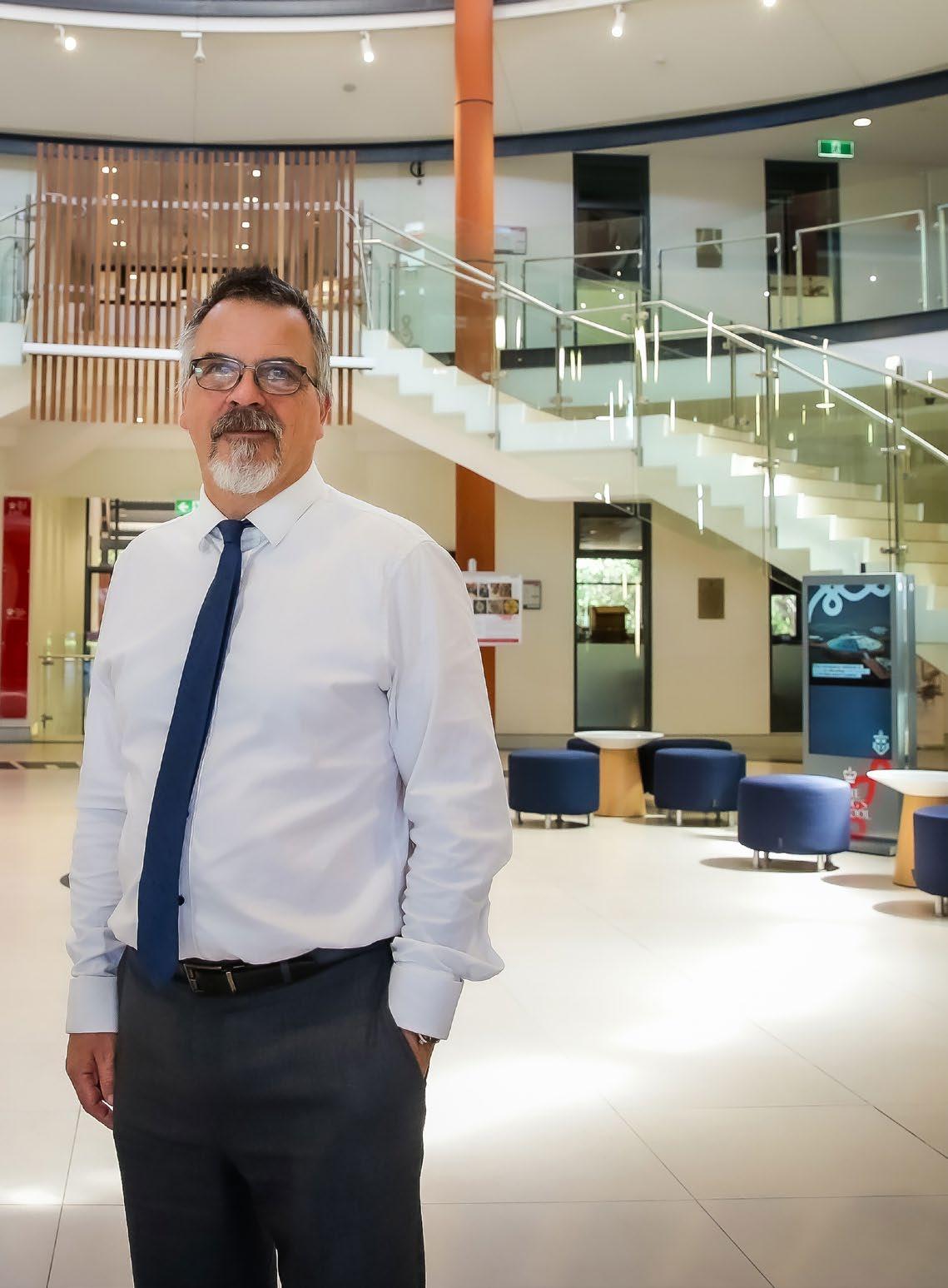
3 minute read
A New Era in Science at King’s
Kings’ students have an incredible opportunity to take part in science experiments right at the edge of current thinking, thanks to our new Head of Science, Professor Peter Wilson, and our state-of-the-art Science Centre.
Professor Peter Wilson, King’s Head of Science, is undertaking fascinating research into the nature of ‘dark matter’ and is bringing his decades-long expertise to the school for the benefit of the boys and the whole school community.
Professor Wilson’s career began in Dunedin his native New Zealand. He has held many different roles over time, including stints as a teacher at Otago Girls’ High School and in Japan working as a Physics professor at the University of Tsukuba, where he started courses taught in English to attract international students. Professor Wilson was also Dean of the University of Tasmania and Director of Special Projects at Southern Cross University in Lismore.
In the 1980s, Professor Wilson went to Antarctica six times to study why the fish there don’t freeze, even though they should, given the water temperature is sub-zero. “We would drill through the ice and catch 100-kilogram pound fish that synthesise antifreeze proteins,” he explains. More recently, Professor Wilson has worked alongside particle physicists at State University of New York at Albany on the nucleation of super-cooled water. The team published a paper that shows the neutron that can cause the nucleation of super-cooled water, which led to his winning the Gordon and Betty Moore award from the American Physical Society. Professor Wilson will visit Albany this January as part of his prize.
“We will work to design a long-term experiment to go down into mines in the search for dark matter. Nobody really knows what dark matter is but it’s out there, and we think particles of dark matter hit the earth from various angles from space. But we don’t know quite what energy level to look for or how to find them. Our idea is to use a volume of super-cooled water, because the neutrons that can cause nucleation are a good analogue for dark matter.”
The kilometre-deep Stawell gold mine in Victoria is part of the experiment. The team will set up a physics lab there to undertake super-cooled water experiments.
More recently, Professor Wilson has been awarded a grant to explore whether ocean spray can seed ice crystals in clouds.
Back to School
Professor Wilson is also continuing the work of The Future Project from the King’s Science Centre, which houses eighteen sophisticated labs that involve industry partners such as the University of NSW, scientists from which are on-site carrying out experiments. The King’s School is the only secondary school in Australia to have a physical-containment Level Two lab for doing microbiology experiments.
“The boys can get involved in their experiments and also take part in projects, workshops and internships,” Professor Wilson explains. As an example, one group of researchers was recently able to create kangaroo meat in a petri dish from stem cells, the first time this had been done.
“We are also working with UNSW on experiments to determine the best way to look for life on Mars; the boys will be involved in these experiments We’re also working with the university on the design of the next Mars Rover Robot,” he says.
Aside from his experimental work, Professor Wilson is also teaching junior Science and senior Physics classes. He says King’s students are fortunate to have such outstanding science facilities.
“I encourage the boys to take advantage of the facilities as much as they can, learn as much as they can and get involved as much as they can,” he says.










